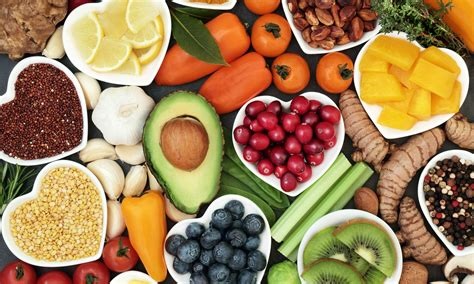
Basics of Nutrition:
- Macro-nutrients: These include carbohydrates, proteins, and fats. They provide the energy your body needs to function.
- Carbohydrates: Found in bread, rice, pasta, and fruits. They are your body’s primary energy source.
- Proteins: Present in meat, fish, eggs, and beans. They help in building and repairing tissues.
- Fats: Found in oils, nuts, and avocados. They’re essential for brain function and absorbing certain vitamins.
- KNOW WHAT YOUR EATING AND HOW WILL IT BENEFIT YOU TODAY!
- Micro-nutrients: These are the smaller, but equally important, nutrients – vitamins and minerals.
- Vitamins: Found in fruits, vegetables, and grains. They help with various bodily functions, like immune support and wound healing.
- Minerals: Present in foods like dairy, nuts, and leafy greens. They help with bone health, fluid balance, and nerve function.
Portion Control:
- It’s not just about what you eat but also how much.
- Pay attention to portion sizes.
- Eating the right amount of food helps maintain a healthy weight.
- When weighing and tracking portion sizes, after enough experience and consistency, you can become more efficient at “eyeballing” and knowing approximately how much food and calories you are in-taking.
- As you exercise your body will start telling you what it needs ( cravings, meat( you body need Iron) Potato Chips your body needs salt ( I use whole wheat crackers, potato chips not so healthy)
Balanced Diet:
- Aim for a balanced diet that includes a variety of foods. This ensures you get all the necessary nutrients your body needs.
Drink 8 glasses of water a day for proper Hydration:
- Drink enough water. It’s crucial for digestion, nutrient absorption, and overall bodily functions. Thirst is your body’s way of saying it needs water, so listen to it!
- Not coffee not tea – WATER – there is plenty of filtered water that makes water taste better
- Water also helps with your memory!
- Water also helps to keep your skin looking good!
Whole Foods vs. Processed Foods:
- Choose whole, unprocessed foods whenever possible. These foods are more nutrient-dense and generally better for your health than heavily processed ones.
- Do you like Cheese? It doesn’t like you! You can’t avoid it, however you can reduce you daily intake. (I’m down to once a month)
Listen to Your Body:
- Pay attention to hunger and fullness cues. Eat when you’re hungry and stop when you’re satisfied.
- When you start taking “specific vitamins and supplements you will drastically reduce your hunger cravings”
- Do your homework, read about vitamins and supplements to help reduce those cravings ( again if there are health issues or concerns ask your doctor)
Moderation:
- Enjoy treats and less nutritious foods in moderation. It’s okay to indulge occasionally, but the key is balance.
- Do some checking there some Amazing healthy treats!
Be Mindful:
- Be mindful of what you eat. Enjoy your meals without distractions, and savor the flavors. This can help prevent overeating.
Lifestyle Matters:
- Nutrition is just one part of a healthy lifestyle. Regular exercise, sufficient sleep, and managing stress are also crucial for overall well-being.
Seek Professional Advice:
- Webmd
- Healthline Are a couple of respected medical website.
- If you have specific health concerns or goals, consider consulting a nutritionist or healthcare professional for personalized guidance.
Remember, nutrition is a journey, and everyone’s needs are unique. It’s okay to take it one step at a time and make gradual changes that work for you.
